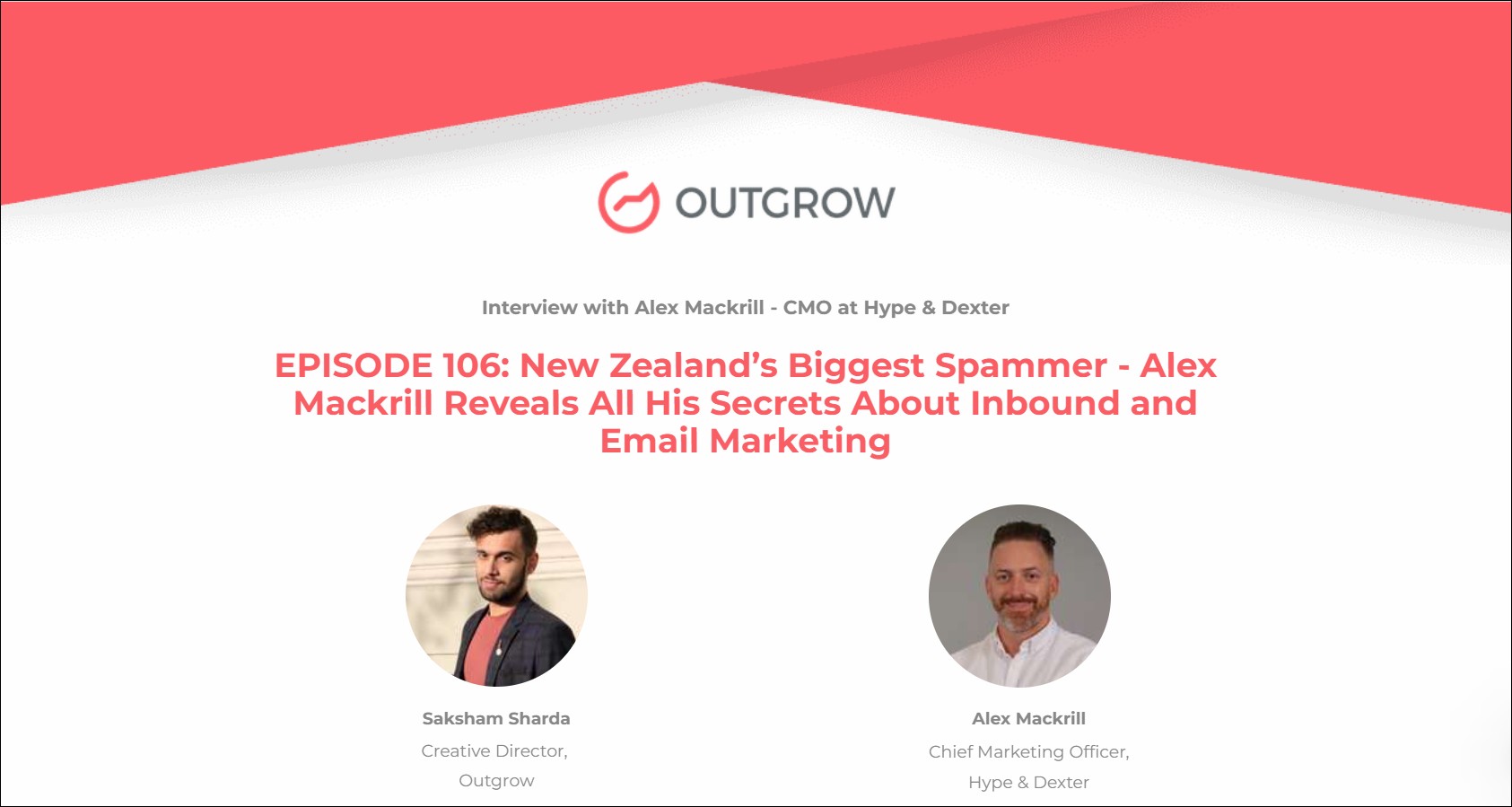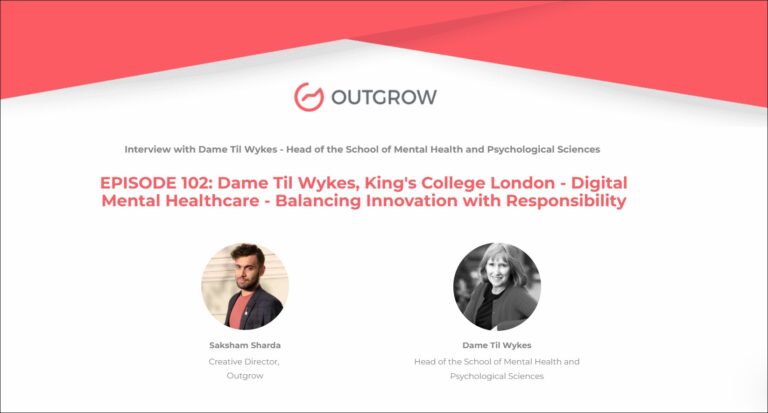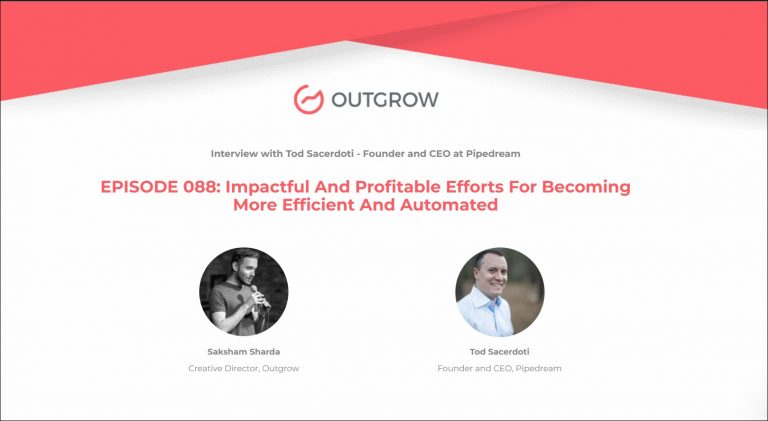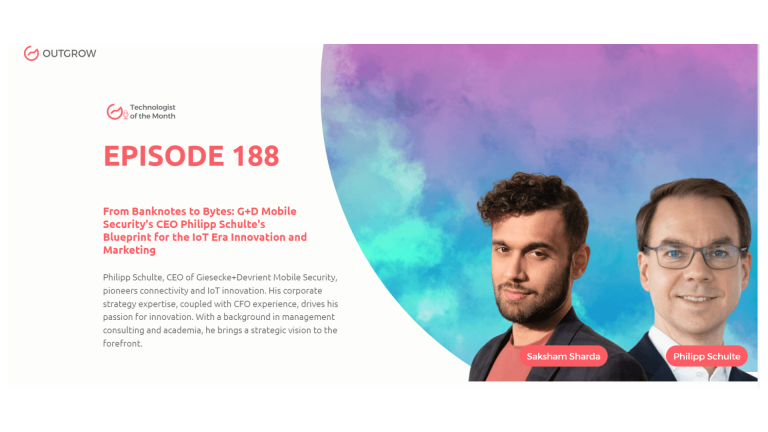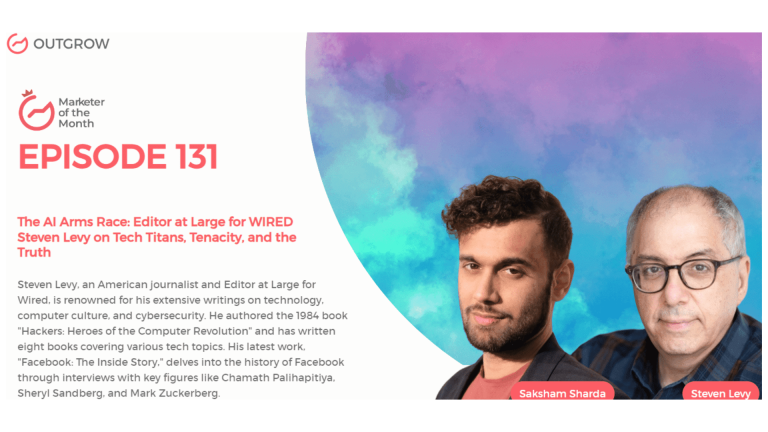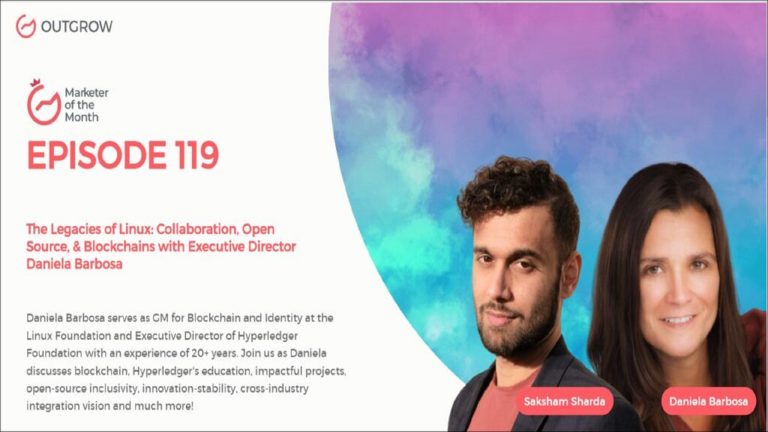Summarize with :
EPISODE 106: Marketer of the Month Podcast with Alex Mackrill
Table of Contents
Hey there! Welcome to the Marketer Of The Month blog!
We recently interviewed Alex Mackrill for our monthly podcast – ‘Marketer of the Month’! We had some amazing insightful conversations with Alex and here’s what we discussed about –
1. How targeted emails helped Alex revive a dormant list, generating significant revenue for a tourism client
2. Common content marketing mistakes: focusing on irrelevant topics and using sales-driven calls to action too early
3. Aligning content with the customer journey: nurturing relationships that drive engagement
4. Understand your audience, develop buyer personas, and map customer journeys
5. Why early creation of organic content, addressing consumer interests and market trends is essential
6. Measuring bottom-of-the-funnel metrics like leads, value, and ROI using tools like HubSpot and Salesforce
About our host:
Dr. Saksham Sharda is the Chief Information Officer at Outgrow.co. He specializes in data collection, analysis, filtering, and transfer by means of widgets and applets. Interactive, cultural, and trending widgets designed by him have been featured on TrendHunter, Alibaba, ProductHunt, New York Marketing Association, FactoryBerlin, Digimarcon Silicon Valley, and at The European Affiliate Summit.
About our guest:
Alex is a marketer with a strong focus on driving digital results. With experience in copywriting, he excels at initiating conversations and closing sales. Originally from the UK, he has worked at the forefront of the industry in New Zealand for six years, serving over a thousand clients and leading successful campaigns for renowned brands like Spark, Uber, and Honda.
New Zealand’s Biggest Spammer – Alex Mackrill Reveals All His Secrets About Inbound and Email Marketing
The Intro!
Saksham Sharda: Hi, everyone. Welcome to another episode of Outgrow’s Marketer of the Month. I’m your host, Dr. Saksham Sharda, and I’m the creative director at Outgrow.co. And for this month we are going to interview Alex Mackrill, who is the Chief Marketing Officer at Hype and Dexter. Thanks for joining us, Alex.
Alex Mackrill: Hi, Saksham. Great to be here. Thank you.
Don’t have time to read? No problem, just watch the Podcast!
Or you can just listen to it on Spotify!
The Rapid Fire Round!
Saksham Sharda: So Alex, we’re going to start with a rapid-fire round just to break the ice. You get three passes. In case you don’t want to answer the question, you can just say pass but try to keep your answers to one word or one sentence only. Okay?
Alex Mackrill: Got it.
Saksham Sharda: Alright, so the first one is at what age do you want to retire?
Alex Mackrill: 55
Saksham Sharda: How long does it take you to get ready in the mornings?
Alex Mackrill: 40 minutes,
Saksham Sharda: The most embarrassing moment of your life?
Alex Mackrill: I once tried to vault a bar outside a nightclub and there was a queue of people watching me as I cracked my nuts on the bar.
Saksham Sharda: Wow. Favorite color?
Alex Mackrill: Blue.
Saksham Sharda: What time of day are you most inspired?
Alex Mackrill: Nighttime.
Saksham Sharda: How many hours of sleep can you survive on?
Alex Mackrill: Seven.
Saksham Sharda: Fill in the blank- An upcoming marketing trend is _______.
Alex Mackrill: Artificial Intelligence
Saksham Sharda: The city in which the best kiss of your life happened?
Alex Mackrill: Blackpool
Saksham Sharda: Pick one, Mark Zuckerberg or Jack Dorsey?
Alex Mackrill: Jack Dorsey.
Saksham Sharda: The biggest mistake of your career?
Alex Mackrill: Pass.
Saksham Sharda: How do you relax?
Alex Mackrill: Music
Saksham Sharda: How many cups of coffee do you drink per day?
Alex Mackrill: Never more than three.
Saksham Sharda: A habit of yours that you hate?
Alex Mackrill: Pass
Saksham Sharda: The most valuable skill you’ve learned in life?
Alex Mackrill: To value and elevate those around you.
Saksham Sharda: And the last one is your favorite Netflix show?
Alex Mackrill: Ozark.
Saksham Sharda: Okay. All right. That’s the end of the rapid-fire round. I think you just had two passes or something. So that was quite good.
The Big Questions!
Saksham Sharda: Now we can go on to the long-form questions. And these you can answer with as much ease and time as you like. The first one is can you share some insights on how you have helped your clients with email marketing campaigns in the past?
Alex Mackrill: So I’ve got quite a background in email marketing. One of my partners bills me as New Zealand’s biggest spammer, which goes back to a company we worked out which had one of the largest email marketing databases in the country, and we email them twice a day. And that came to 1.2 million emails a day. So over 8 million emails a week were sent out. When we started hoping for Dexter, we had a client who was a tourism operator and they collected emails as part of the signup process. When people embarked on the experience, they didn’t do anything with it, except send one follow-up email with some photos from the experience. And they had accumulated over 100,000 emails from all around the world or kinds of people over several years. And they wanted to do something with it. First of all, I was gobsmacked that they, they’d waited five years to do something with it. But we managed to take that list of 100,000 contacts and segment it in a meaningful way. So those who had been signed up most frequently don’t experience multiple times, who was likely, and therefore was likely to be local, and responsive to an offer to do the experience again, or an enhanced version of the experience. So that was the offer we went out with. And we managed to retain something like 92,000 just over 100,000 emails in terms of there being a meaningful response, it was deliverable. And throughout a program of emails, we got at least one open side effect of that was we made over half a million dollars in revenue just in trying to warm up that database. So that was quite a big kind of big win. Because yeah, the brief was save as much of this database as you can we saved you know, the huge amount of 90% and we made them some money in the process.
Saksham Sharda: I mean, to what extent would you be happy or willing to let us use the phrase New Zealand’s biggest spammer for marketing this episode I think that would be a great way of getting it online.
Alex Mackrill: I don’t mind, definitely
Saksham Sharda: So marketer of the month for this month but New Zealand’s biggest spammer. Is it the biggest or greatest?
Alex Mackrill: The biggest is okay.
Saksham Sharda: All right. So in your experience, what are some common mistakes that businesses make with their content marketing or email marketing strategy?
Alex Mackrill: I love this question and I see the same two mistakes all the time even now. To all these years of content marketing becoming quite a sort of mainstream Marketing methodology. So number one would be, as a business writing about what’s important to us, we care about this thing we’re going to write about were knowledgeable in this area, we can go in-depth we can write about really well. But it all counts for nothing. If your customer doesn’t care about it, or they’re there earlier in the journey, then they would even be aware that they should be, you know, digesting this kind of content. We’ve all gone to websites. And you know, there’s huge “about us” sections, and the blog is very much you know, about us and our people on our team and our culture and our delivery and things like this. These are not answering the burning questions that are on your customer’s minds, unless they’re right at the end of the buying journey, like looking to decide whether to do business with you, which of course 99% of your target audience or not, that’s somewhere earlier in that journey towards becoming a customer. So the second thing I would say is writing assuming that everyone is at that stage of the buyer’s journey, and all your calls to action, you know, you bring people to your site with your content, or you push ads out and you get them to your content, the call to action is almost always, by now, book a demo, start a free trial, to sales, these kinds of things when as I say, the journey that your customers on dictates that they’re going through phases that we like to call awareness consideration decision, there’s a call to action that is far more relevant based on where they probably are in that journey. If it’s awareness, it might just be to digest more content, to digest content that helps move them to the consideration stage where it’s okay, now I’m aware of the problem I’m trying to solve and what the options might be to solve it. Show me some options, you know, who is A provider, Provider B, solution A, solution B. And if we can own that narrative and guide the customer through the journey, then we can own them at that point where they’re ready to engage with talk to sales as a call to action. But yeah, we can’t. We can’t neglect what is most important in our customer’s mind and our content should be paramount. If we can answer their questions and solve their problems, even if they’re things that our product doesn’t solve, we know of and we know our customers are trying to solve this problem on the way. That’s what we should be aiming to do.
Saksham Sharda: So to what extent is this marketing function going to be usurped by programs like Chat GPT, or AI, where the questions can just be asked and the knowledge you’ve gotten immediately?
Alex Mackrill: That’s a tough one, I guess this way to go before an AI can seek to imitate or infiltrate the IP that we deem ourselves experts might have. So I guess, it comes back to one of those core tenets of inbound, you should imbue your content with probably more intellectual property than you would normally be willing to give away for free, and you should be a little bit uncomfortable with the amount you give away. I mean, that’s always been true. But even more so now, that is our unique human advantage that we have intellectual property that eventually AI is if we put enough of our IP out there on the internet, and it’s available for scraping and for APIs to learn from they might get there. But right now, we still have that advantage.
Saksham Sharda: And so what about businesses that are just starting? How do you approach inbound marketing for such businesses?
Alex Mackrill: Yeah, well, inbound starts and is built on a foundation of understanding your customer, understanding their unique goals and challenges, and understanding the journey that they might go on towards purchasing your product or service. In practical terms, that means developing a buyer persona by profile and mapping their customer journey. This can be really hard if the business is truly just starting, and they don’t have customers. You might have to retrofit who we think our customers are. But to do that you should go back to market and product research, define your USP and your product market fit. We understand not all businesses have the luxury of spending time and money in the research phase. So we try and understand the product and who it’s best going to fit in terms of a customer. And then we find people like that in terms of in B2B, their role or the organization that they represent or in B2C? What makes them tick and what is it that they’re, you know, they’re motivated by and then we can craft a persona from there, of course, ideally, we’ll engage a business when they’ve got some idea of who the customer is. And we can look at data and review those customers, especially if we’ve got high-value customers who purchase all the time or purchase more often more expensive. Transactions there the people want to talk to why did you decide on engaging this business? Why do you keep purchasing from what’s good about it? Who else did you consider along the way And what steered you towards this decision? What brings you back? I’d say as well start creating content, organic content right away. We all know organic content is a marathon, not a sprint, the sooner you can start, the better, you should have started yesterday. But we’ll start today. And we’ll just start pumping out content. And we’ll measure more testing, we’ll see what works. We can be backed by research, you know, that consumer lens, but we can also look at keyword research and other trending topics and things like this as well to understand what the broader market is probably interested in, and start writing content that answers those questions or, you know, is likely to be found in in the most popular searches. And remember that organic content isn’t static it can be updated, it can be enhanced, it can be optimized, can add content offers, and lead generation devices as well. And I’d say the next thing to do would be to create a high-value content offer. So inbound we talk a lot about offers. That’s not your typical e-retail or e-commerce offer of 10% off and free shipping, it can be that if that’s the business, but more often than not, it’s a free template or free guide free eBook, a quiz or calculator, something to interact with. That gives us an excuse to say hey, would you mind giving us your email. So create high-value content offers to generate leads, and again, that core tenant giving away a little more intellectual property than you probably feel comfortable with is a great way to go. When we started Hype and Dexter, we gave away our entire marketing methodology in a course of 10 emails. And it was good because we were right at the start. So it helps us define and get it down on the page. This is, how we’re going to tackle inbound marketing for our clients. We put it all down in a series of emails, each one was quite in-depth but linked off to blogs and templates. And we gave away all the same templates that we use when we’re working with a client to develop their inbound strategy. The key thing is, you’d be crazy to try and take this on yourself. It’s almost like you know, you shouldn’t be blinded by the science of it, like, kudos to you, if you can pick that up. And all the information there, all the resources there. But kudos to you, if you can pick that up and run with it. Because it’s a lot of work. We hope that you’ll realize in reading this, how much work it is, and maybe it’s easy to engage us. And there’ll be a version of that in your business if you’re just starting. Or if you’re high, you know, established business. Doesn’t matter though, there’ll be some intellectual property or something that you can give away, that is meaningful and tangible, but ultimately brings the customer back to your door.
Saksham Sharda: So speaking of unique challenges, can you tell me about a time when a client came to you with a specific marketing challenge? How did you approach that problem and what was the outcome?
Alex Mackrill: Yeah, it’s a tough one, I can’t think of a specific client or situation I’ll do I just talked about my sort of approach to this scenario where it’s a specific challenge to solve. So I think when you’re presented with a specific challenge, the first thing to ask is why. And you might have to ask why five times to get to the root of the problem. Quite often, we haven’t fully understood we know the outcome we’re trying to achieve. But we haven’t understood the root of the problem or the underlying cause of the root of the problem. So we have to as consultants, we have to dig pretty deep. And you can ask yourself this if you don’t have the benefit of a consultant or an agency to engage. Regroup internally, what is it we’re solving this for? What is the outcome, first of all, we all agreed on the outcome we want to reach. And then let’s start peeling the onion. Let’s start understanding the layers and the root causes of this problem. I’d say it goes back to that implant process as well. Do we have research? Do we have any data ideally, you’d have some actual in-market, Battlefield tested data, to back up any decisions that you’re going to make or to validate any assumptions that you might have made. Failing that you’d have some auxiliary research first-party research is great, but third-party research if that’s not available to you, and then get under the skin of what it is that you’re trying to solve and why. And then start testing. Start testing you’ll in the process, you’ll identify 2,3,4,5, potential bottlenecks and the customer journey or whatever it is you’re solving for the campaign journey, the sales process, and the customer service experience, and start tweaking it, start monitoring it making little adjustments and see what has the biggest impact and then redouble your efforts on that area that has the biggest impact.
Saksham Sharda: So could you give us an example of one inbound marketing campaign that you all like, a story about an inbound marketing campaign that was interesting for you?
Alex Mackrill: Yeah, I think the best inbound marketing campaigns are what I call Evergreen. And I’ve engaged in a lot of clients who they’re pretty sold on the inbound approach, but what they’re trying to achieve is quite a sort of tactical or seasonal. And it’s often not the right kind of campaign for inbound to be effective. I think if you’re thinking inbound, you should be thinking long-term. And you should be thinking evergreen was an evergreen topic, something that is always relevant, not just something that’s relevant right now, or at least some that’s gonna be relevant for now. And for a few years into the future, are we prepared to kind of sales stall out on a specific topic and own it? Long term. And that’s where I’ve seen the inbound methodology and even down to individual campaigns work best. So we work with Suzuki, which is, of course, a great, great logo to have on our roster. And we’ve developed a piece of content for them, which has been in the market for about two years, it’s had a couple of visual refreshes. A lot of copy refreshes to keep it you know, relevant. And it keeps going, it keeps going we’ve supplemented the creative that points to the campaign. We’ve supplemented with other video content, other lead generation devices, like quizzes and testimonial videos and case studies and things like this, and it just keeps going. So if you can try and identify when thinking about Inbound Marketing, because it’s a big investment in terms of the amount of content and creative input, it requires. Think about what’s evergreen, what’s a really hot topic now and is likely to be in the medium to long term. If it’s a tactical, seasonal approach, I still hand on heart believe the more traditional methods of marketing, or digital marketing, are probably more appropriate for those short, sharp tactical campaigns, not to say that might not you know, might not have a place if it is part of an overarching long term strategy.
Saksham Sharda: And so how do you go about measuring the success of all these strategies, whether the email content or inbound?
Alex Mackrill: Yeah, so I like to look at it from the bottom of the funnel up. So once upon a time, as marketers, you know, we came out with impressions, clicks, open rates, all these metrics, which are still really relevant, but they’re very top of the funnel. Then of course, clicks, conversions, bounce rates, things like this, the next layer down that we look at, but when I say bottom up now where we’re working with HubSpot, primarily, but other platforms as well, or tech stacks that allow you to see the flow from marketing to sales to becoming a customer to after-sales care, to customer service to re-engaging with marketing and that whole customer lifecycle. In one platform, potentially, or you know, in one stack, where we can see the same customer move through all those stages of the lifecycle. We are responsible for sales-qualified leads the average value of a lead or leads from certain channels more valuable than others. Do they have a high Lifetime Customer Value? Are they more likely to convert? How much revenue is the leads marketing is generating and influencing, I should say, because we’re not directly responsible for the leads, but we do have influence as well. How much revenue did we generate for the business? And what does that look like when we calculate the return on marketing investment?
Saksham Sharda: And what software do you use to kind of measure this?
Alex Mackrill: Yeah, so there’s a few obviously, and we are the apex, number one HubSpot partner. So we, you know, back HubSpot all the way it’s one of the most unified and usable platforms. It has CRM, marketing, automation, customer service, it’s content management system, and it can be a few other things as well. But there’s no reason why, you know, it can’t be Salesforce CRM with Salesforce marketing cloud or some combination of you know, we see Clavijo is popular in the E-commerce space and has functions that serve e-commerce and retail particularly well. Marketo, of course, and the marketing automation side was the sort of big sort of enterprise default choice for a long time and probably still is in some parts of the world. What we’re looking for without just dropping names is a unified platform. Like I say HubSpot is one instance but that’d be a few, or a platform that plays nicely with others, you need a CRM, and you need marketing automation. And ideally, if you want to complete that Reb ops kind of picture and measure every engagement you have for the customer, something that supports your customer service function as well.
Saksham Sharda: Could you talk a bit more about the role of HubSpot in your agency’s marketing strategy, and how it has helped you to better serve your clients?
Alex Mackrill: Yeah, so as well as implementing and Solutioning HubSpot for our clients and in their businesses, we use HubSpot ourselves. It comes down to the fact it’s a CRM that people want to use. My business partners, have a bit of a checkered history with CRM and have probably been resistant to using CRMs in the past, and they’d admit that, but they love using HubSpot. And, you know, they’re, not finding a burden to get good data in there as they engage a prospect. And similarly, we as marketers, or you know, people who serve our clients when we’re not finding it difficult to maintain HubSpot CRM that everyone uses marketers salespeople customer service. So that’s key, because you know, you want to get good outcomes. If you get good data into the system. We get in terms of what enables us to do, we can switch out calls to action. And I mentioned having the most relevant call to action that aligns with your piece of content and where that content probably sits in the buyer journey, we can do that to the “nth” degree. So we have CTAs on our website, or sections of our website, where you might see any one of nine or 10 CTAs, depending on where you are in the customer lifecycle. So we can always show you the most relevant most engaging, next step to move you through our marketing and sales funnel. Or if you are a customer to move you through the most relevant content that’s going to support you ongoing, or to give us feedback on your experience working with us. As a result of marketing automation and good CRM data, we can build a profile on our leads, and we can nurture them effectively because we can segment and personalize them. When I say progressively profile, I’m talking about literally pointing people back to the same form. But because the form is powered by our CRM, it knows what it already knows, it knows not to ask you, your country, or your job title again, because it’s already asked that it’s already captured that data point. So it will dynamically swap out the form the next time you see it and ask you the next question. So we can get really rich data. And then we can build a lead scoring model around that. If we know Alex is from hype and Dexter, they’re headquartered in New Zealand and Sydney, they’ve got this much revenue, this many clients, he’s a hot lead, his lead score is 50, whatever it might be, let’s qualify him to have sales, take a look and try and engage them in conversation. And ultimately, like I mentioned, with HubSpot, and other platforms or you know stacks that they integrate nicely, it means we can see almost every interaction across the customer lifecycle, all in one place. And that allows us to attribute our marketing efforts or sales efforts or customer service effectiveness through every stage.
Saksham Sharda: Because you talked about AI earlier, how do your teams ensure that your agencies stay up to date with the latest marketing techniques and trends in this era?
Alex Mackrill: Well, I mean, we do the obvious things, like listen to podcasts and subscribe to newsletters and things like that. But we also do commit to a few things that mean we have to be on our toes. So I run the HubSpot user group in Auckland and Sydney. And I do that in both cases with another agency. So that’s good, because you know, we’re friendly with those agencies, but they are, you know, in a competitive space with us. So we want to put our best foot forward when it comes to presenting ourselves at those, those events. And when I say that, it means you know, being well-informed on the topics. I’ve just come back from a HubSpot user group in Sydney, where we’re talking about the influence of AI in marketing, what’s happening now where we see it going. So that required me to engage on a deeper level with you know, that particular topic. Yeah, so we will book ourselves in for speaking engagements and things like that, where we maybe aren’t confident that were like the absolute paragon of the expert on the topic, but it means you know, we’ve put ourselves on a timeline whereby we’ve got three, six months, whatever it might be to get informed about that topic. And by the time we step on stage or into the webinar or the podcast, we feel pretty confident that we can own a conversation on that topic. And then just internally, we have a lot of showcases whereby you know, as a marketing team, we’ll sit down once a month and we cycle around the team each month and we’ll present back a campaign that they’ve engaged with online, we actually ask that they you know, they sign up for it, they click the link, go to the website, whatever it is the campaign is asking you to do and present back what that user journey looks like. Well, that camp ain’t flow looks like and not to put too much burden on them just present it back. And we’ll discuss what we think is good or bad. What can we learn from it? Where could we implement some of these ideas in our work, and then across departments as well? And if you’re not doing that in your business, that’s something that heartily recommend. What is the development team doing? That’s cool. Some of them might be technical and go over your head. But if you don’t have them, show you their work and their wares, then well, first of all, you won’t necessarily fully value what they do and how brilliant the workers are, but you won’t know how to market it in my case, or you won’t know how to sell it, and the case of the sales department, if we don’t get in a room and review that work and understand the problems that it’s solving.
Saksham Sharda: So keeping all of this in mind, the last question for you is of a personal kind, what would you be doing in your life, if not this right now?
Alex Mackrill: That’s a good one. I do often wonder, like, I’d like to think I would be making music in some capacity that was always my dream from sort of, yeah, from my school years and through University. My education was almost sort of in the background. And my focus was really on not just playing music, but sort of arranging and producing and things like that. I think I’m happiest in the studio. But like I think that’s informed me as a marketer. And I also studied film and visual media so another creative aspect alongside being interested in music at University. So I think that’s informed me as a marketer to you know, understand visual language communications. In terms of copywriting I’ve got told my copywriter is very lyrical. And I was like, well, funny. You should say that because I aspire to be a songwriter at one point in time. So yeah, if I wasn’t doing that, something that allowed me to travel.
Saksham Sharda: I was going to say now that AI is also going to enter music, it’s going to be easier to create music. And so it might be an area that can still be achieved. Even in filmmaking, it’s laying ruin to filmmaking as well.
Alex Mackrill: So it’s yeah, if you’re struggling to write that third verse, or that middle part of the song just ask Chat GPT to make it up for you.
Saksham Sharda: But also it can mix songs and create new music or adapt music from previous artists. So I feel we’re gonna have a whole new set of DJs on the world stage who knows?
Alex Mackrill: Interesting time.
Let’s Conclude!
Saksham Sharda: Alright. Well, that was the last question. Thanks, everyone for joining us for this month’s episode of Outgrow’s Marketer of the Month. That was Alex Mackrill, the Chief Marketing Officer at Hype and Dexter. Thanks for joining us, Alex.
Alex Mackrill: Pleasure. Thanks for having me.
Saksham Sharda: Check out the website for more details and we’ll see you once again next month with another marketer of the month

